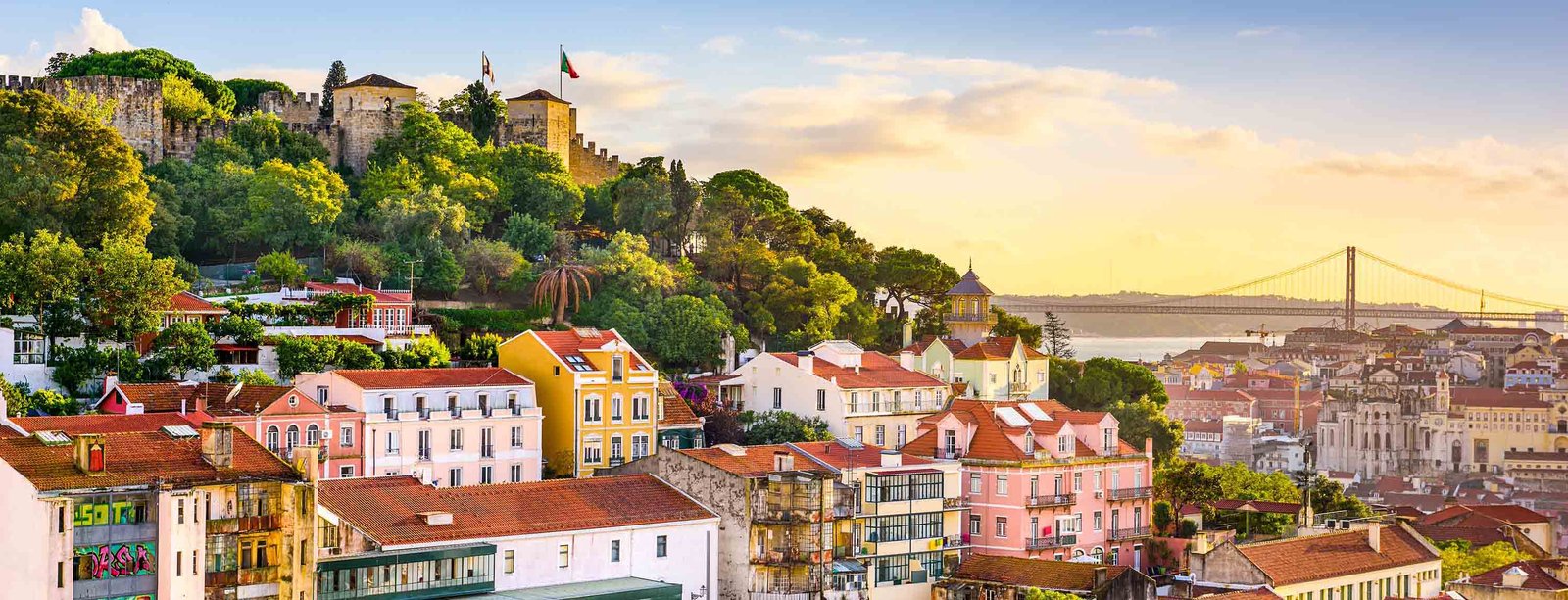About Portugal: History, Culture, and What Makes It Unique
About Portugal: History, Culture, and What Makes It Unique
Set along the Atlantic coast of Europe, Portugal is a nation where golden beaches meet ancient castles, where soulful Fado echoes through tiled streets, and where tradition blends seamlessly with modern creativity. Understanding Portugal’s geography, history, and culture not only enriches your travels but also connects you with the essence of this welcoming country.

Geography & Climate
Portugal occupies the westernmost edge of the Iberian Peninsula, sharing its only land border with Spain and embracing the Atlantic Ocean on its western and southern coasts. Despite its modest size, Portugal’s geography is impressively diverse. The north is marked by lush river valleys and rugged mountains, while the south boasts sun-drenched plains and dramatic cliffs. Offshore, the autonomous regions of Madeira and the Azores bring volcanic landscapes, crater lakes, and subtropical gardens into the national mosaic.
Portugal enjoys a Mediterranean climate moderated by the Atlantic. Summers are typically hot and dry in the interior but milder along the coast, while winters are cool and rainy, especially in the north. The Algarve offers beach-perfect conditions from May to October, while Madeira is blessed with year-round spring-like weather. This climate diversity means you can surf in the morning and hike snow-dusted peaks in the afternoon during certain months of the year.
A Brief History
Portugal’s history stretches back thousands of years, shaped by Celts, Romans, Visigoths, and Moors before becoming a unified kingdom in 1139. The 15th and 16th centuries marked the nation’s Age of Discoveries, when explorers like Vasco da Gama and Ferdinand Magellan charted new maritime routes and brought global fame and wealth to Lisbon. During this era, Portugal established a vast empire spanning Africa, South America, and Asia.
Although empire decline, earthquakes, and political upheaval followed, Portugal retained a strong identity rooted in exploration, resilience, and creativity. The 20th century saw decades of dictatorship, but since the 1974 Carnation Revolution, Portugal has embraced democracy and modernization while honoring its traditions. Today, it is a member of the European Union and a model for balancing heritage with forward-thinking innovation.
Culture & Traditions
Portuguese culture thrives on contrasts—melancholic yet joyful, traditional yet innovative. One of its most iconic cultural expressions is Fado, a soulful music genre recognized by UNESCO as Intangible Cultural Heritage. Typically performed in Lisbon or Coimbra, Fado captures the Portuguese concept of saudade, a bittersweet longing for something lost.
Visual culture is equally distinctive. The country is famous for azulejos, decorative ceramic tiles that adorn churches, palaces, train stations, and even ordinary houses. These cobalt-blue panels tell stories of history, religion, and daily life, adding a unique artistic identity to Portugal’s towns and cities.
Food and drink are inseparable from Portuguese culture. From simple grilled sardines and hearty caldo verde soup to refined seafood rice dishes, cuisine reflects both the Atlantic and centuries of global influence. Portugal’s wines, from the bold reds of the Alentejo to the sparkling vinho verde of the north, pair perfectly with regional dishes. And of course, the sweet custard tarts, pastéis de nata, have become global icons. For an in-depth look, visit Food & Drink in Portugal.
Festivals are another window into Portuguese traditions. From the Festa de São João in Porto, where the night sky fills with lanterns, to summer street parties in Lisbon honoring Saint Anthony, locals celebrate with music, dancing, and grilled sardines. Our Festivals & Events in Portugal guide highlights the best times to experience these traditions firsthand.
Language & People
The official language is Portuguese, spoken by over 10 million residents at home and more than 200 million globally, thanks to historic ties with Brazil, Angola, and beyond. While English is widely understood in major cities and tourist areas, learning a few phrases—such as “obrigado” (thank you) and “bom dia” (good morning)—goes a long way in connecting with locals.
Portuguese people are renowned for their hospitality and warmth. Travelers often remark on the friendliness of locals, whether they are giving directions, sharing regional food recommendations, or engaging in casual conversation. This openness is part of the cultural fabric and one of the reasons why Portugal consistently ranks among the world’s most welcoming destinations.
Economy & Modern Portugal
While Portugal’s past is deeply tied to exploration and empire, its present is a story of resilience and adaptation. Tourism is now one of the largest sectors, drawing millions each year to its coasts, cities, and islands. Agriculture, particularly olive oil, cork, and wine production, remains vital, while the technology and renewable energy industries are rapidly growing.
Modern Portugal blends innovation with heritage. Lisbon and Porto have become hubs for startups and digital nomads, while regions like the Alentejo focus on sustainable tourism and conservation. The balance between modernization and tradition gives Portugal a distinctive edge, appealing to travelers who want both authenticity and comfort.
Responsible & Sustainable Travel
As tourism grows, Portugal emphasizes sustainability. Initiatives include protecting fragile coastal ecosystems, reducing plastic use, and promoting eco-friendly accommodations. Travelers can support these efforts by choosing local businesses, respecting nature trails, and minimizing waste. For more insights, see our Sustainable Tourism in Portugal page.
Why It Matters
Understanding Portugal beyond its postcard images enriches your travel experience. Knowing the context behind Fado songs, recognizing azulejo patterns, or appreciating the endurance of its people transforms sightseeing into a deeper connection. Portugal is not just a destination—it’s a story of discovery, resilience, and cultural richness waiting to be shared.
Conclusion
Portugal is a small country with an outsized impact on world history and culture. Its geography spans sunny coasts and volcanic islands, its history resonates through castles and monasteries, and its traditions live on in music, cuisine, and daily life. As you prepare for your journey, let this background guide you, helping you see not just the landmarks but the living culture that makes Portugal one of Europe’s most rewarding destinations.
